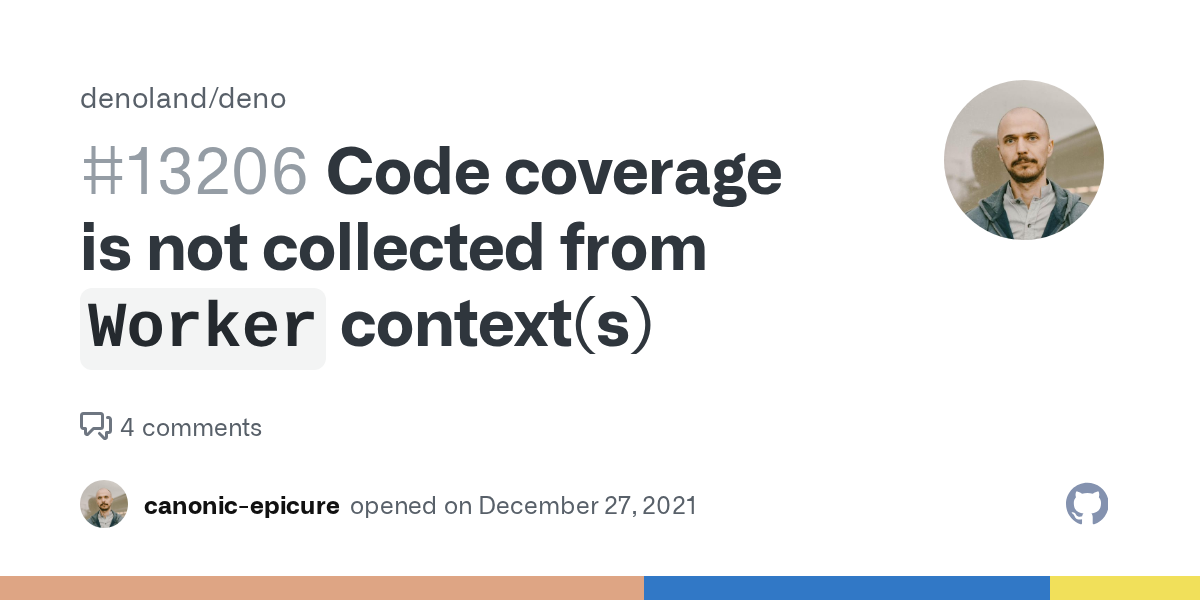Deno.test without Deno namespace ?
Hi there,
Does someone know if it's possible to run a test from
I tried using a workaround by using Web workers and performing a
I'd like to avoid deleting Deno from the main realm since I assume it'd eventually give me some weird behavior
My use-case is to test some functions that behave differently depending on the runtime (like for example whether ˋglobalThis.Deno` is defined or not)
Does someone know if it's possible to run a test from
Deno.testI tried using a workaround by using Web workers and performing a
delete self.DenoI'd like to avoid deleting Deno from the main realm since I assume it'd eventually give me some weird behavior
My use-case is to test some functions that behave differently depending on the runtime (like for example whether ˋglobalThis.Deno` is defined or not)
GitHub
$ deno --version deno 1.17.0 (release, x86_64-unknown-linux-gnu) v8 9.7.106.15 typescript 4.5.2 It seems code coverage is not collected for scripts from the worker contexts (neither from the worker...

